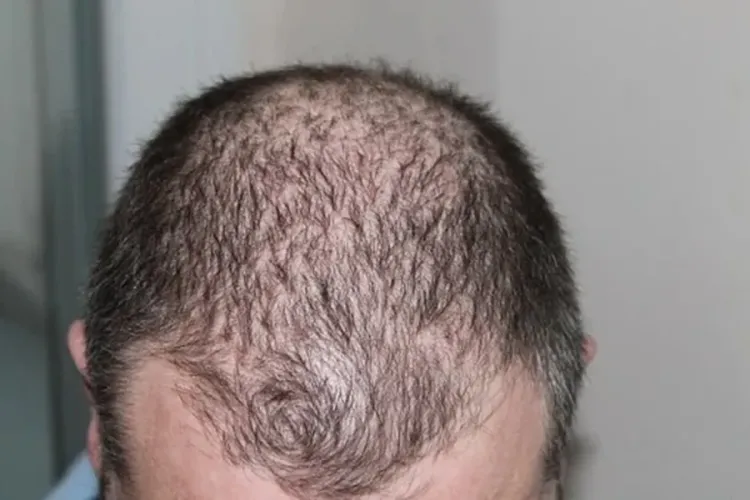Research Indicates Low Dosages of Antibiotics Can Aid in Treating a Rare Hair Loss Condition

Synopsis
Key Takeaways
- Low doses of doxycycline are effective for hair loss treatment.
- Fewer side effects observed with lower dosages.
- Study involved 241 participants with hair loss issues.
- No significant differences in treatment effectiveness between doses.
- Lower dose regimen is a viable alternative for patients.
New York, March 18 (NationPress) Small quantities of a widely used antibiotic and anti-inflammatory medication can assist in addressing a rare hair loss condition stemming from a misdirected immune response, as indicated by a study published on Tuesday.
The research conducted by experts at New York University Langone Health suggests that lower doses of antibiotics might lead to fewer adverse effects compared to higher doses.
The investigation focused on lymphocytic scarring alopecia -- a rare dermatological issue where the immune system's cells harm hair follicles, resulting in hair loss and scarring.
Typically, this long-lasting condition is treated with relatively high doses of the antibiotic doxycycline, often administered over extended periods.
However, this medication may induce nausea, vomiting, and skin rashes, which can deter patients from adhering to their treatment regimen, according to the research team, whose findings were reported in the Journal of the American Academy of Dermatology.
To assess the efficacy of lower doses, the research involved 241 male and female participants suffering from various types of lymphocytic scarring alopecia. The results showed that both lower doses (generally 20 milligrams taken twice daily) and higher doses (up to 100 milligrams taken twice daily) of doxycycline were comparably effective.
Notably, there was no marked difference between the two groups in terms of scalp inflammation assessments, patient-reported severity of hair loss, and clinical evaluations of hair density, hair shaft diameter, and hairline recession.
Furthermore, while 23 percent of patients on the high-dose regimen reported typical negative effects associated with doxycycline, only 12 percent of those on the lower doses experienced the same.
Additionally, 25 percent of the high-dose cohort discontinued doxycycline due to gastrointestinal complaints, whereas only 16 percent of the low-dose group ceased treatment for this reason.
“Our results indicate that doctors can prescribe lower doses of doxycycline for individuals battling lymphocytic scarring alopecia without sacrificing treatment effectiveness and the anti-inflammatory advantages,” stated Carli Needle, a medical student at NYU Grossman School of Medicine.










